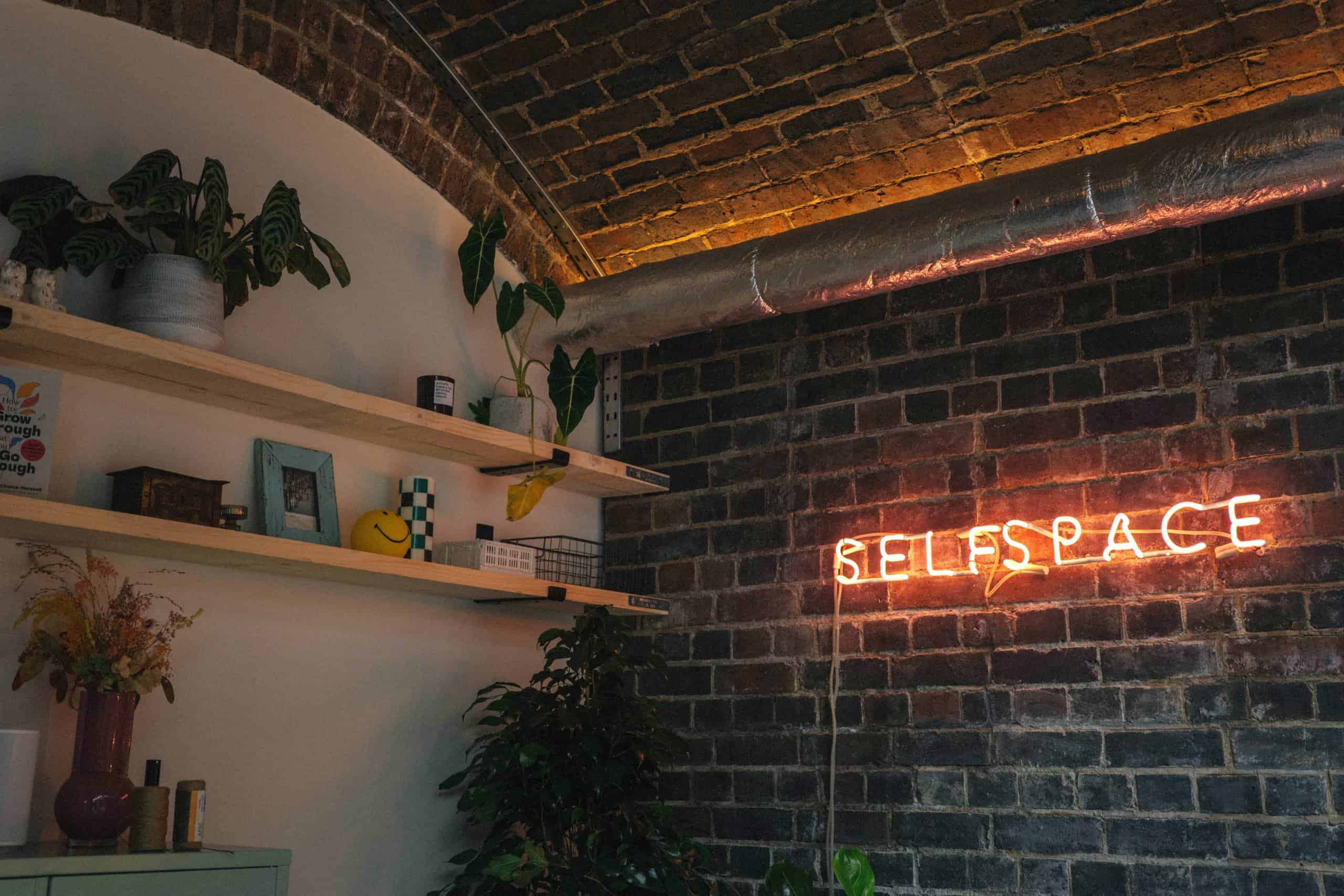
Therapy is one of the best investments you can make in yourself. But at Self Space, we totally get that starting or continuing therapy can be both exciting and, yeah, a little bit daunting. So whether you’re just starting out or you’ve been on this path for a while, we’ve got some tips on how to make sure you’re getting the most out of your therapy sessions. Whether you’re booking therapy in person or trying online therapy, here’s how to make therapy work for you.
1. Show Up Just as You Are
Therapy is your space. No need to pretend or perform here. The more real and open you are, the more we can get to the heart of things and be of service. It’s your call how much you share and when of course, but showing up—especially when it feels like the last thing you want to do—is often where the magic happens. Feeling anxious or low? That’s the perfect time not to cancel a session. Even if all you can muster is to sit in silence or say “I’m really struggling”, that’s still part of the process. It all counts. It’s all important.
2. Set Clear Intentions
Therapy works best when you’ve got at least some kind of picture of what you’re hoping to achieve. Want to understand your anxiety better? Get a handle on a specific tricky relationship? Or perhaps you just want to feel a bit more at home in your own skin? Whatever it is, talk it through with your therapist. And hey, it’s okay if your goals change. They often will. Therapy is fluid. It rarely follows a nice straight line. Just like life.
3. Embrace Discomfort (Especially the Awkward Bits)
Let’s be real: therapy can be tough. Facing difficult emotions, talking about painful memories, or challenging some long-held beliefs—it’s not easy. At all. But it’s worth it. Sometimes, things might get a bit awkward too—like those silences that feel a bit too ….
…long.
Lean into them. Awkward moments can actually be very helpful in helping us see what’s going on below the surface. Your therapist will always have your back though, so if something feels overwhelming, just let them know—they’ll help you navigate difficult emotions and vulnerable moments at just the right pace for you
4. Be Open to Exploration and Stay Curious
Therapy is a space for exploration. It’s about getting curious about your thoughts, feelings, and patterns of behaviour. Your therapist might suggest something new—a different perspective or a new technique. Try to stay open to it, even if it feels unfamiliar at first. Sometimes, the most profound insights can come from some pretty unexpected places.
5. Reflect Deeply Between Sessions
Therapy doesn’t stop when the session ends. The time in between sessions is just as important. Take time to reflect in between sessions and note down your thoughts or feelings. Are you noticing shifts in your mood? Seeing patterns in your thinking? Jot it all down. These reflections are gold dust for your next session and can also help you track and visualise your progress over time.
You might ask yourself questions like:
- What emotions or ideas stood out for me during and after the session?
- Did I notice any shifts in my mood or feelings as we discussed different topics?
- Were there moments when I felt particularly uncomfortable or resistant? Why might that be?
- What thoughts kept recurring during the session?
- What insights did I gain, and how can I apply them in my life?
- Did I notice any patterns in my thoughts or behaviours?
6. Communicate Openly with Your Therapist
Your therapist isn’t a mind reader. Sadly. If something’s not working, or if you’re unsure about how things are going, please let them know. They’re there to support you and your feedback is crucial to help them do that. Open communication builds trust and makes the process more effective. You might ask your therapist questions like:
- What’s your approach to therapy, and how do you think it will help me?
- How do you see our work together progressing?
- What do you think are important areas for us to focus on?
- How do you measure progress in therapy?
- Can we discuss how I’m feeling about the process so far?
7. Be Patient and Be Kind To Yourself
Therapy is a journey, not a quick fix. Progress may not always feel linear. You might feel stuck sometimes. Other times you might wonder if you’re even making any progress at all. That’s totally normal. Change happens gradually, and sometimes the most significant shifts are the ones that occur subtly, slowly, deep below the surface. Practice self-compassion and remember: you’re doing hard, courageous work. Setbacks don’t mean you’re failing—they’re just part of the process.
8. Celebrate Your Progress
Don’t forget to celebrate your progress, no matter how small it might seem. Therapy is hard work, and every insight, every step forward, is a big win. Recognise your growth—whether it’s understanding something new or just feeling a little bit lighter and more at ease. Therapy is about building a life that feels meaningful and fulfilling, and every insight and breakthrough will bring you a little bit closer to that.
Final Thoughts
Getting the most out of therapy—whether in person or online —means showing up as your true self, setting clear intentions, embracing the awkward stuff, and staying curious. It’s about building a relationship with your therapist that’s based on trust, communication, and mutual respect. And it’s about recognising that therapy is a journey, one that unfolds at your own pace.
At Self Space, we’re here to support you on that journey, offering a space where you can explore, grow, and ultimately, thrive.
Therapy, not just for the frazzled, but the self-improvers too.